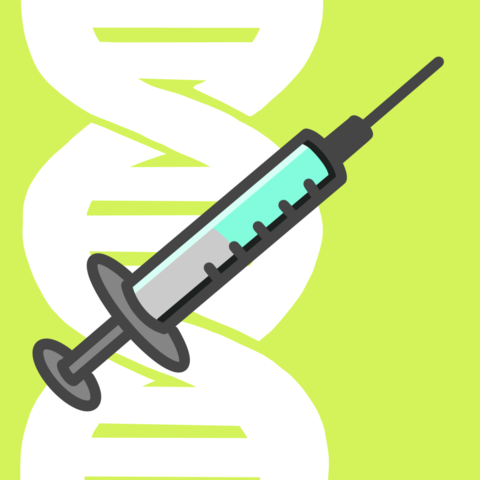There has been speculation about the efficacy of a COVID-19 vaccine due to the speed of production within the last year. With hopes of a vaccine becoming available to the student body in the coming weeks, questions have surfaced regarding its reliability and safety.
Public health officials have demonstrated that the COVID-19 vaccine is reliable and will play a major factor in ending the pandemic, and their trust in it and willingness to get vaccinated themselves should serve as a positive indicator for the Texas State community.
Student Health Center Director Emilio Carranco believes the vaccine is beneficial and safe to take, and students should not be concerned with its rapid development.
“I would try to reassure people that even though the vaccines were developed in a very short period of time that everyone, from the [Centers for Disease Control and Prevention] to the [Food and Drug Administration] to the vaccine manufacturers, [they are] indicating that they will not release a vaccine unless it’s safe,” Carranco says. “Technology has advanced quite a bit around making vaccines. The vaccines were still conducted using the best possible standards. Patients were used to evaluate the safety and the side effects and so in my view, no corners were cut.”
While the speed of production raised some concern over the reliability of the vaccine, it is not unprecedented. In fact, by the time a 1950s flu virus present in Hong Kong spread across the world to America, a vaccine was already prepared.
While the U.S. did not have a vaccine ready for COVID-19 last year, past SARS and MERS research provided the information needed for scientists to focus on what made COVID-19 different: Spike protein.
The spike protein studs the surface of the virus and is able to latch onto the receptors of the cells in our bodies. This made the spike protein the target antigen for the production of the vaccine, meaning the vaccine contains the genetic sequence for the spike protein so cells can build the spikes and hopefully trigger a protective response from the immune system. Pfizer and Moderna conducted vaccine trials and reported results and side effects to the FDA until a vaccine was approved.
Texas State President Denise Trauth stated in a previous interview that the school had already spent $7 million to combat COVID-19, including hiring contact tracers and using disinfectants in the classroom. Although it is important to note the university is only aware of cases students report to Bobcat Trace, cases identified in the Student Health Center and positive cases at its Curative testing sites, no outbreaks were discovered during the spring and fall 2020 semesters, respectively. The vaccine is the last part of the equation.
Carranco says the university is doing everything in its power to make the vaccine available to students and healthcare workers at no cost — thanks to the federal government — which makes those without insurance eligible for the vaccine.
The COVID-19 vaccine will not grant complete immunity from the virus. However, Carranco firmly believes the vaccine can, and will, prevent “severe complications” from occurring due to the virus.
Efforts to adhere to CDC guidelines will also continue during the mass vaccination process. It will require time for distribution to health care workers, then to those who qualify as high-risk and, finally, the general public. Distribution in the U.S. has been described as a “dismal failure” by the current President-elect Joe Biden, which only emphasizes the need to continue following health and safety guidelines.
“In the meantime, just because you’ve been vaccinated doesn’t mean you can stop practicing all the health and safety measures including wearing a mask,” Carranco says. “It will take time for your body to develop the antibody response; it requires two shots, so you’re not gonna be fully protected until a couple of weeks after you get the second shot.”
Leslie Salazar, a biology senior, plans to get vaccinated as soon as she can, which is the right call.
“I would get it for the sake of those who are immunocompromised and can’t do it,” Salazar says.
Noemi Rodriguez, a social work senior, expressed concern over possible side effects of the vaccine but affirms she would still get vaccinated.
“I have a summer internship this summer where I will be working with people that have an increased risk for severe illness, and I would like to take it to stop the pandemic,” Rodriguez says.
Even Carranco, the university’s top health official, plans to get vaccinated as soon as it is made available, stating he is “confident in the safety” of the vaccine. Students should follow this line of thinking.
Students should not fear getting the COVID-19 vaccine. Numerous trials have shown that vaccines are safe, effective and can put a halt to the pandemic that has made life miserable.
– Natalia Hernandez Guzman is an international studies senior
The University Star welcomes Letters to the Editor from its readers. All submissions are reviewed and considered by the Editor-in-Chief and Opinion Editor for publication. Not all letters are guaranteed for publication.
Opinion: The university community should not fear COVID-19 vaccine
January 21, 2021

Vaccine
Donate to The University Star
Your donation will support the student journalists of Texas State University. Your contribution will allow us to purchase equipment and cover our annual website hosting costs.


















